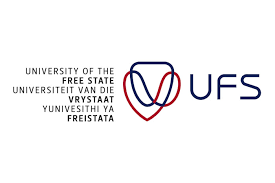University of the Free State: Prof Makombe awarded the first UFS Book Prize for the Qwaqwa Campus
The UFS Book Prize for Distinguished Scholarship recognises outstanding research-based publications by academics who produce original books of an international standard. The purpose of the book (which must not be older than three years) should be to spread original research and new developments within a specific discipline, sub-discipline, or field of study.
The prize for 2021 was awarded to Prof Rodwell Makombe, Associate Professor in the Department of English on the Qwaqwa Campus, for his book titled Cultural texts of resistance in Zimbabwe. The book was published by the American publisher Rowman and Littlefield in October 2021 and looks at discursive resistance – resistance expressed through cultural art forms such as songs, memes, cartoons, and jokes that reflect on and contest hegemonic narratives promoted by the ZANU-PF in Zimbabwe, he expressed.
Prof Makombe’s win is a first for the Qwaqwa Campus.
Resistance manifested through everyday cultural expressions
He says the book was inspired by the widespread view that Zimbabweans have been docile and somewhat acquiescent to ZANU-PF’s oppressive rule in Zimbabwe, and he thus wanted to show another side of the story. “I wanted to show that Zimbabweans have never been silent accomplices of their oppression. I see oppression not only as physical, but also as discursive. When one looks at the Zimbabwean Netscape since 2000, it has been awash with resistance, opposition, frustration, anger, disappointment, and cynicism. To understand resistance, we have to look at the things that people do and imply every day.”
In other words, Zimbabwean cultural artefacts such as music, whether chimurenga, sungura or gospel, are in many ways the music of resistance against the poverty, family disintegration, hunger, death, and political bigotry that have proliferated in the context of the economic crisis, he said.
“The same can be said about cartoons, memes, and social media posts of the post-2000 period. They all articulate a general sense of disgruntlement and disappointment with the political situation. One point the book makes is that resistance should not only be restricted to offline activities, but it should also include digital resistance,” he said.
Prof Makombe said it was exciting to break the ice by being the first winner on campus. “This is my first book, and when I saw the application call, I said to myself, ‘give it a try’. I am currently working on a monograph on the post-coloniality of everyday life in post-Mugabe Zimbabwe, with a specific focus on social media humour and satire. The book should be ready for publication sometime in 2023.”
Prof Makombe is currently in the US as a visiting scholar at the African Studies Centre under the University of Michigan African Presidential Scholarship (UMAPS) programme.
Prof Heidi Hudson, Dean of the Faculty of the Humanities, accepted the book prize on his behalf. She said: “I think this is fantastic, and I am extremely proud of the Department of English; it is doing such great work. We shouldn’t underestimate this book award, as it is for excellence and scholarship.”

